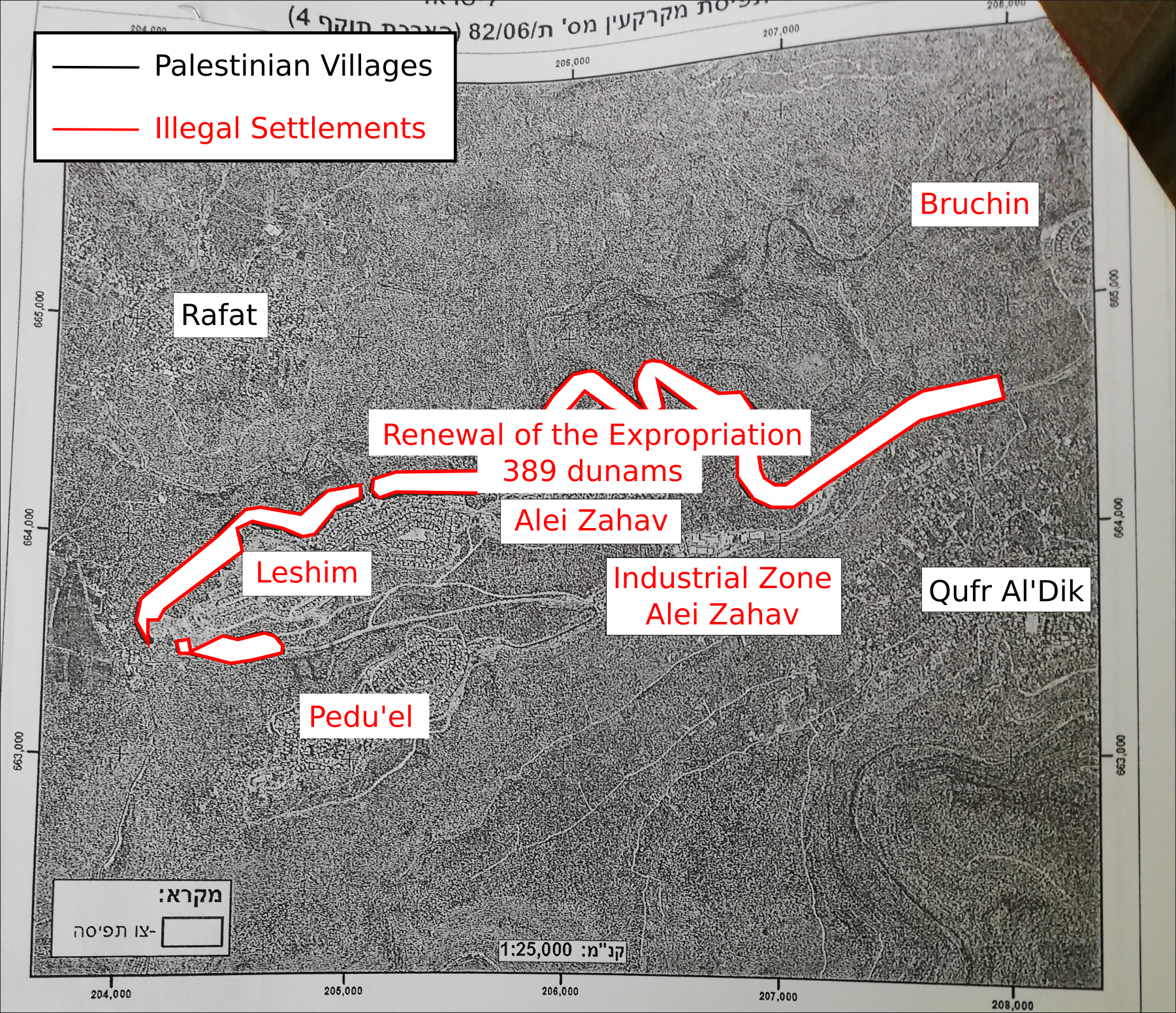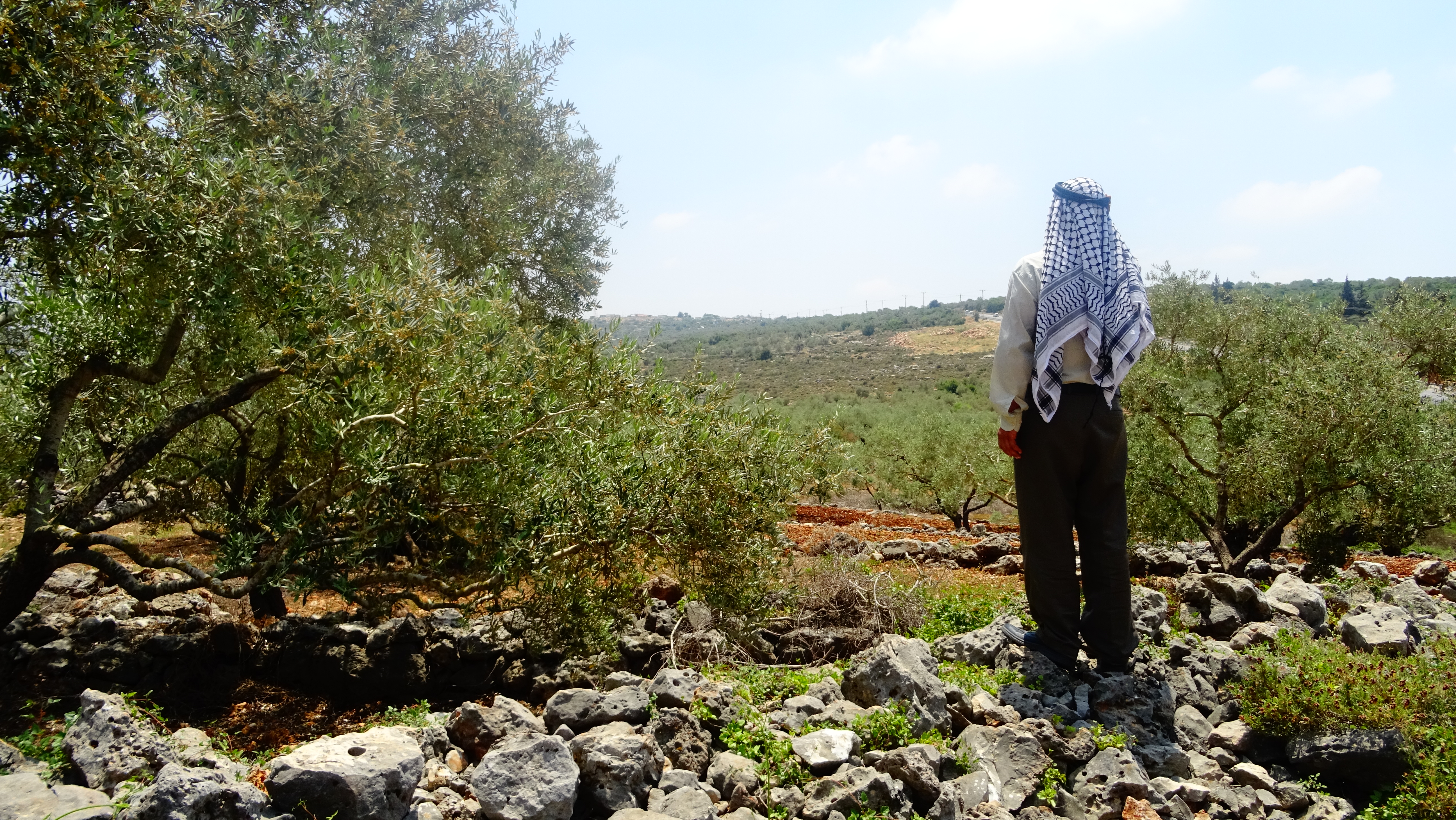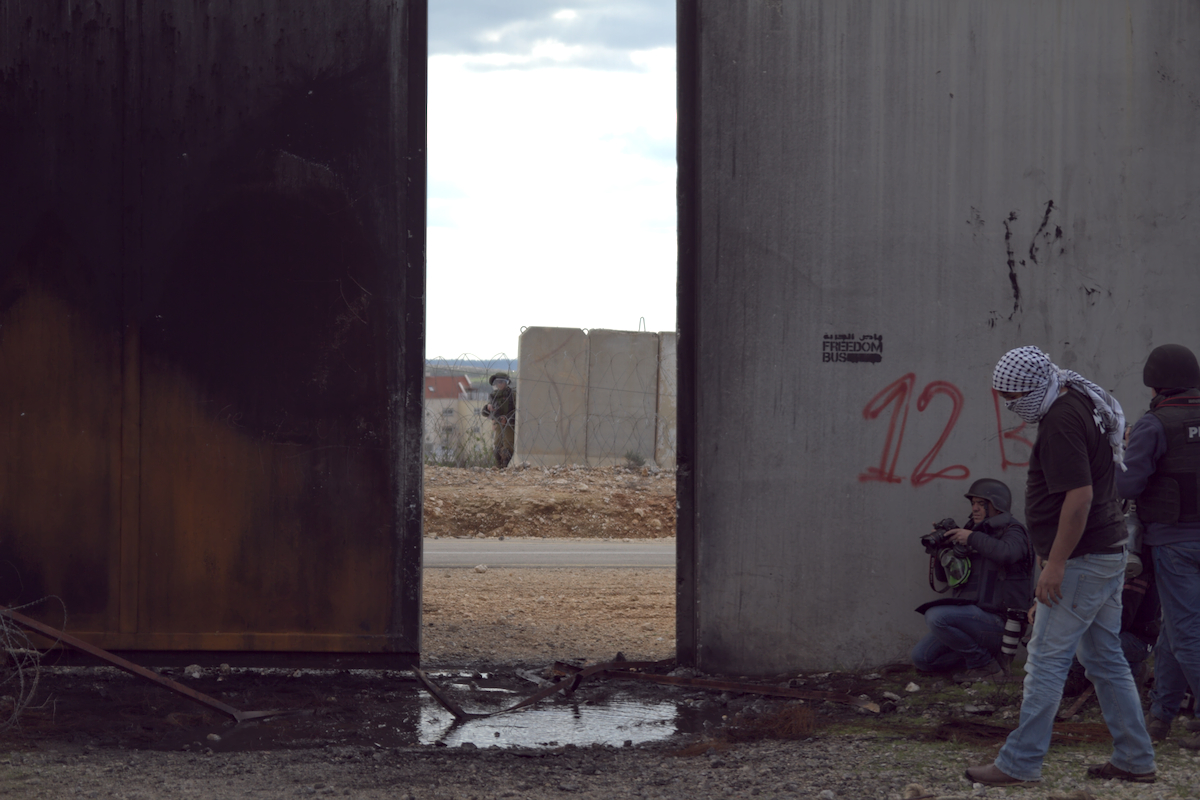Tag: Salfit
-
Report on Land Confiscations by the Israeli Army in Salfeet and Qalqilya Area
The Israeli Occupation Forces have recently announced a new series of land seizures in eleven villages in Salfeet and Qalqilya, Occupied Palestine, a move that will affect almost 1 million square metres of Palestinian land.
-
Palestinians denied passage for Friday prayer in Deir Istiya
6th May 2017 | International Solidarity Movement, Ramallah Team | Deir Istiya, occupied Palestine Yesterday, 5th May, for the second week in a row , a group of Palestinians gathered in the olive groves, just outside Deir Istiya, district of Salfit, for their Friday prayer. Before the prayer even started, a group of Israeli soldiers denied…
-
CALL TO ACTION: Salfit under brutal settlement expansion
11th April 2017 | International Solidarity Movement | Occupied Palestine Since the beginning of the year, the Salfit municipality in the occupied West Bank (Palestine) has become a target not only for illegal settlement expansion and growth but also for the imposition of serious restrictions to the daily lives of Palestinians. For a long time…



